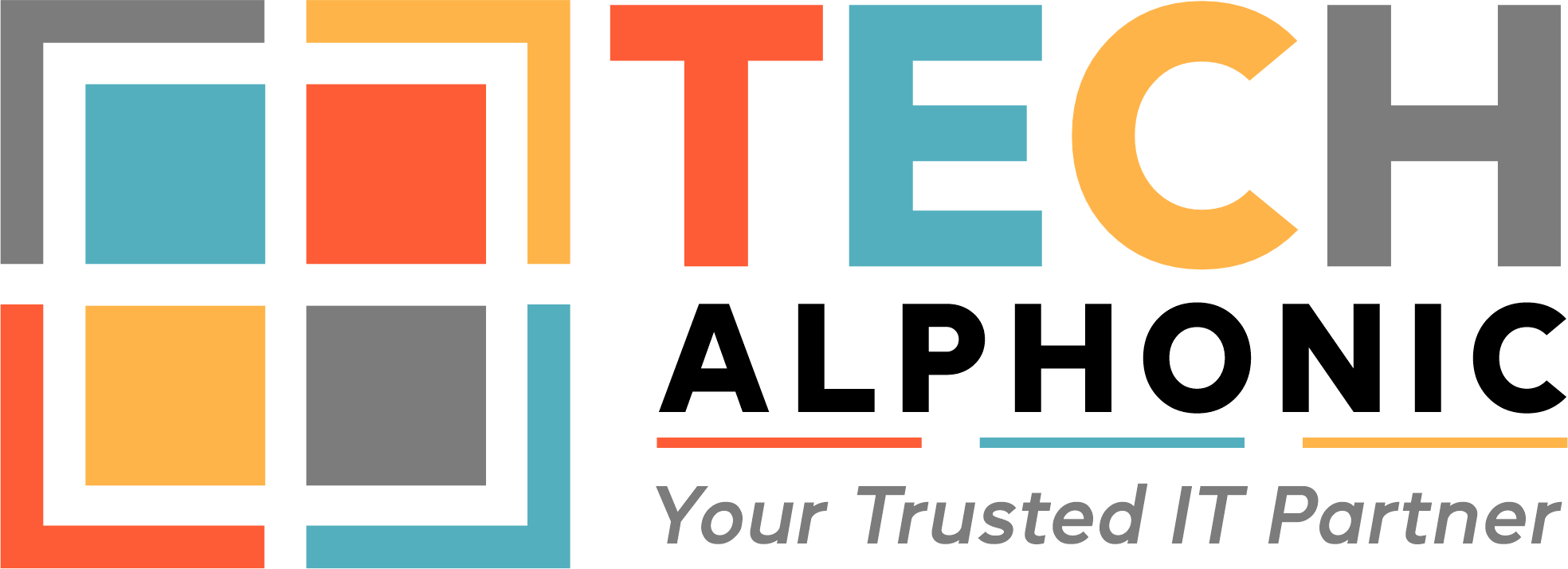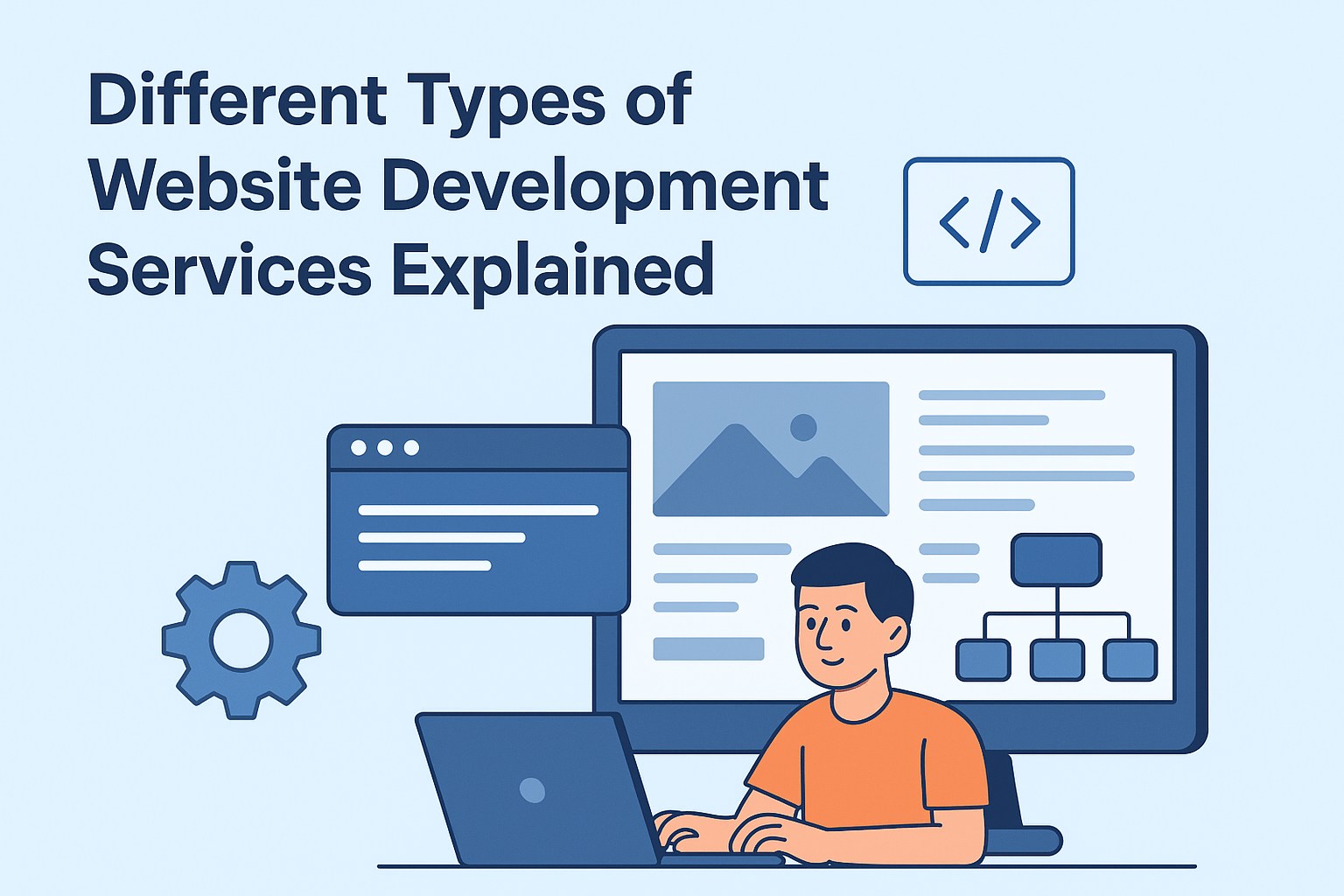In this modern age of everything being digital, your website is the core of online existence for the brand. It is required by every startup to invest in establishing itself, while corporations look to engage their clients. While this growth is enormous, so has been the pace at which India has made strides in technology, and henceforth, designing services in website development, India became a benchmark for a world standard in quality, innovation, and pricing.
This information from the Tech Alphonic, shall encompass the full range of website development services along with their objectives and the advantages they have to offer an organization. It shall also guide the way through which one can find out the best website development services India for their business. All will be covered, from front-end to back-end, from CMS solutions to eCommerce solutions.
Static Website Development
- List
Description:
Static website development comes under low-level web development. Static web pages are coded compositions with fixed content in HTML, CSS, and sometimes in JavaScript. Each of the pages is coded separately, and there is no input from the user to the server.
Who is it for?
Well suited for small businesses, portfolios, or deals that want a simple online presence without constant updates.
Key Features:
- Loading fast without requiring much from the server
- Affordable as well as speedily constructed
- Easy to host and maintain
Examples:
An example could be a one-page portfolio of a digital agency or maybe a menu page for a local restaurant.
The mass of other website development services Indian companies usually prefer small enterprises to carry out static websites since this is the easiest way and the cheapest theory.
Dynamic Website Development
Overview:
A dynamic website utilizes scripting languages on the server-side, such as PHP, Python, or Node.js, to generate content dynamically. They produce from a database and can renew data without a need for manual editing for each page.
Who Gets It:
For organizations that frequently update their content: blogs, news portals, or corporate sites.
Key Features:
- Interactive and user-friendly
- More easily maintained and updated
- Scalable with the growth of business
Examples:
A news website that updates stories every day or an online educational platform listing courses.
Website development services India is generally known for dynamic website projects involving huge content management systems (CMS) and databases for smooth operation.
E-commerce Website Development
Overview:
E-commerce sites are an entirely different platform for selling goods and services. It has to do with designing online stores, such as product catalogs, payment gateways, a cart system, and customer dashboards.
Who Is It For:
For retailers, wholesale suppliers, and brands that sell products or services.
Key Features:
- Secureness of Payment and SSL Encryption
- Product management and inventory control
- User accounts and order tracing
- Responsive layout for mobile shoppers
Popular Platforms:
- Shopify, WooCommerce, Magento, and OpenCart.
Why India Leads the Way:
Most companies prefer to avail of these kinds of e-commerce website development services in India because of the technical skills and integration flexibility as offered at cheaper rates by the Indian developers.
CMS-Based Website Development
Overview:
A Content Management System (CMS) provides you the comfort of controlling your content and updating it on your website without any technical know-how. The developers build it and now design the CMS; you control it for the content creation.
Who is it for?
Organizations that occupy themselves with continuous updating of content, like bloggers, news media, and corporations.
Key Features:
- Easy update that does not require coding knowledge
- Flair to personalize through plugins and themes
- SEO-enabled architecture
Popular CMS Platforms:
WordPress, Drupal, Joomla, and Typo3.
Thus, going for website development services India for CMS-based projects might not only be budget-friendly but will also help you connect with experienced developers who will customize the platform according to your specific business needs.
Web Application Development
Overview:
Web applications, on the other hand, are in contrast to regular websites, as they are interactive platforms and involve very complex tasks directly in the browser. A few of the examples are online banking portals, project management tools, and SaaS applications.
Who Is It For:
Business organizations that need an interactive platform for their operation, analytics, or customer engagement.
Key Features:
Highly interactive UI/UX
Integration with API and Databases
High functionality and security levels
Example:
Google Docs, Trello, or CRM dashboards.
Website development service India has become part of household names with innovative web application development for delivering scalable and secured solutions using technologies such as React, Angular, and Laravel.
Full-Stack Web Development
Overview
Full-stack developers actually work on the front and back end of the development process. In fact, they develop websites from designing the whole system to deploying it. Full-stack development is entirely flexible and allows complete control from design to deployment.
Who It Is For:
Start-ups and enterprises looking for end-to-end web solutions from a single vendor.
Key Features:
Holistic:
- Front-end and back-end capabilities.
- Shorter turnaround time.
- Better coordination and control of quality.
Known Stacks:
- MEAN (MongoDB, Express, Angular, Node.js)
- MERN (MongoDB, Express, React, Node.js)
- LAMP (Linux, Apache, MySQL, PHP)
Most of the multinationals looking for website development services India prefer full-stack development, primarily because of the presence of very highly qualified experts with cross-domain expertise in the full-stack development sector.
Responsive Web Development
Introduction:
Responsive to all screen sizes: desktops, tablets, and smartphones. This is what web development entails for smooth function on the devices.
Who It Is For:
Every company wants to reach out to mobile users in the present time, as they account for over 70% of internet traffic.
Key Features:
- Design and layout mobile-friendly
- Loading speed optimized
- Better ranking on search engines
Today, Indian agencies specializing in types of website development services in India mostly emphasize building mobile-responsive portals.
Progressive Web Application Development
Overview:
PWAs bring the benefits of a site and a mobile app to a user, giving him or her an experience like that offered by an app while using a browser.
Who It’s For:
Big business wants to entice like that of a mobile app without separate investment into developing an app.
Key Features:
Operational even offline
Send push notifications.
Quick in loading and has an app-like interface
Why Use PWAs?
PWAs are low cost, SEO-friendly, and have very high performance across all platforms.
Currently, progressive web application development has gained ground by Indian website development services since the application very significantly closes the gap left by both websites and native ones.
Custom Website Development
Overview:
Custom website development is developing a site completely from scratch—and wholly exceptional to the specific goals, audiences, and functionality needs of the brand.
Who It Is For:
Businesses that have a much higher requirement for lots of customizations than what is made available by standard templates or CMSs.
Key Features:
- Unique design and functionality
- Better integration into already existing systems Improved scalability and performance
Example:
Custom-built dashboards for internal usage or niche platforms like real estate or healthcare portals.
Custom is mostly adopted from among website development services India, as they are totally flexible and quite affordable.
Enterprise Website Development
Overview:
These sites are the large, highly data-intensive platforms developed and designed to deal with the huge volumes of information and user interactions.
Who It Is For:
Corporates, government, and multinational bodies.
Key Features:
- High-end security and access control
- Integrated with CRMs and ERPs
- High scalability and performance
Website services in India include enterprise-grade platforms known for their strong security and data management systems.
Why Opt Tech Alphonic for Website Development Services in India?
With India becoming the global hub by way of innovation in digitalization, these points shed light on how outsourcing of website development services from India to this nation actually turns out to be a smart send:
- Cost Efficient: World-class quality at extremely competitive pricing.
- Technical Expertise: Very wide matter with their large pool of skilled developers in all key technology stacks.
- 24/7 Support: Thanks to time zone advantages, continuous development cycles are enabled.
- Quality Assurance: Testing processes made to ensure that all websites will perform their best and error-free while delivering services.
- Customization: Indian agencies design up tailor-made solutions against specific business goals.
No matter the need—a simple static site, an extremely functional e-commerce engine, or an elaborate web-based application—you can be sure that website development services in India will meet that need with precision and innovation. See.
FAQs (Frequently Asked Question)
1. What are the major types of website development?
The individually distant types of website development could mostly fall under the static or dynamic, e-commerce, CMS-based, full-stack, responsive, PWA, custom, and enterprise headings. Each is designed to cater to a special business need.
2. Why choose website development services India from Tech Alphonic?
Tech Alphonic provides the prototype solutions backed by raw technical expertise and experience at international levels are few. Yet they are of high quality and low cost, which are high phrases for their worth.
3. What is the difference between static and dynamic websites?
Normally, static websites show the same content for all users, whereas dynamic content changes based on the user’s request or the program being used to display the content.
4. How much time does it take to develop a particular website?
The time can range from just a week for an elementary site build-up to months for a custom or enterprise site.
5. Can I customize my site once it has been developed?
Yes, it’s easy to change, modify, or add onto the site once it goes live, either through CMS or custom-built website development as the business grows.


